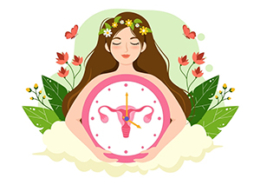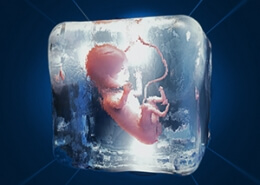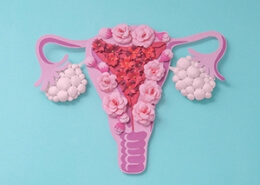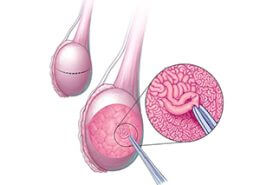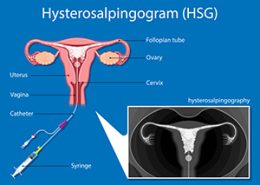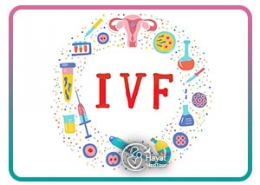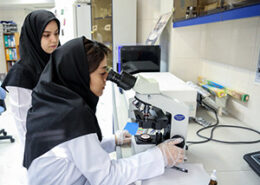Causes of IVF failure
Why does IVF Fail for some People?
IVF is one of the most effective treatments for infertility and is performed in many reliable and well-equipped medical centers around the world and Iran. As you know in IVF or in vitro fertilization, oocytes and sperm are combined in vitro, and when the egg is fertilized, the primary cell begins to divide and form the embryo. The embryo is transferred to the mother’s uterus to undergo subsequent developmental stages to survive by implantation into the uterine lining. unfortunately, IVF failure may happen for some people.
Although the success rate of IVF is high compared to other infertility treatments. But unfortunately, it doesn’t always succeed. IVF failure can be for a variety of reasons, which in many of them, you have no control over. Being upset after a failure is normal, but you should not blame yourself or your spouse. Knowing the causes of IVF failure can help you avoid failure factors as much as possible and have a strong incentive to do IVF again. In this article, we have tried to identify the leading causes of IVF failure.
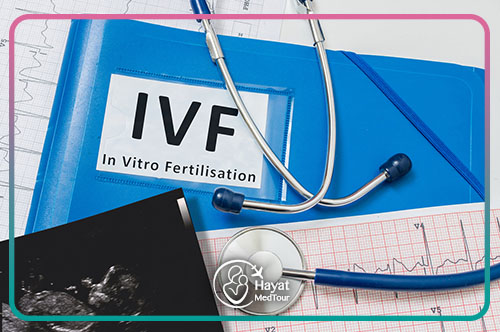
At what stage the IVF process may fail?
Pregnancy is possible when all stages of IVF treatment are successfully completed. Therefore, any of the following can make IVF treatment fail:
- At the stage of ovulation stimulation, the ovaries do not respond well to fertility drugs and do not get enough eggs.
- During the egg retrieval stage, the eggs are of poor quality and unable to fertilize. Therefore, no embryos can be transferred to the uterus. (Learn more about ways to improve your egg quality: How To Improve Egg Quality For IVF)
- If the preparation of the uterus is not done correctly or due to uterine problems, the uterus does not have suitable conditions for the transfer and implantation of the embryo.
- If the embryo is not transferred to the uterus by a specialist physician with appropriate equipment.
- During embryonic development, the embryo is unable to implant for a variety of reasons, including fetal genetic problems or uterine disorders.
Factors Influencing IVF Failure
Embarking on the IVF journey can be such an exciting and sometimes overwhelming experience. Even with all the incredible advancements in fertility and infertility treatment, it’s important to remember that the success rate of IVF can be influenced by different factors. In the upcoming discussion, we’ll explore the most significant factors that can impact the outcome of IVF treatments and share a brief overview of how each of these factors can affect the final result of your IVF journey.
Poor ovarian responses
Sometimes, in the initial stages of treatment, the ovaries do not respond well to fertility drugs and ovulation stimulation, and as a result, enough eggs are not obtained to continue the treatment process. This issue can happen due to low ovarian reserve (especially if the woman is older than 37 years). On the other hand, the ovaries may not be properly stimulated and are not able to produce enough eggs to create multiple embryos due to the inappropriate dosage of medicines. In this case, there is a possibility of IVF failure.
If the ovaries have adequate reserves in the initial tests and examinations, repeating IVF by taking the right dose of drugs, under the supervision of a specialist and experienced doctor, can increase the chances of IVF success.
If the woman’s ovarian reserve is not suitable and sufficient due to reasons such as old age, the doctor may suggest the use of donated eggs to increase the chances of IVF success. Learn more about the causes of infertility in women: Female causes of infertility
Female age and Eggs quality
The quality of the egg is crucial to having a healthy fetus. At an older age, the quality and number of oocytes are most affected and the risks of IVF failure are increased. Therefore, the woman’s age is crucial to the success of IVF. For women younger than 35 years, the implantation rate is about 45 percent, while women aged 40 to 42 years who use their own eggs for IVF treatment have only a 15 percent chance of success. However, if women over the age of 35 use the eggs of young donors, the chances of success are almost similar to those of young women. Thus, it can be said that the egg age is more important in IVF success than the mother’s age. learn more about the ways to boost your chances of IVF success: How To Increase Your Chances Of IVF Success
Low quality of sperms
For having a healthy embryo, in addition to the quality of the eggs, the quality of the sperm is also very important, so the integrity of sperm DNA plays a critical role in the formation and expected growth of the embryo. Scientific research shows that low sperm quality increases the risk of miscarriage and recurrent miscarriage if it leads to pregnancy. Therefore, it is recommended to do a DFI test (sperm DNA integrity) before IVF. Impairment of sperm DNA integrity is often improved by changing and improving lifestyle, using complementary medicines such as vitamin C, vitamin A, folic acid, selenium, etc., and hormonal treatments.
In some cases, the doctor recommends testicular tissue sampling (micro-TESA) before IVF to obtain a better-quality sperm sample.
Failure of implantation
For IVF success, the formed embryos must be able to attach to the inner wall of the uterus after being transferred to the uterus to allow for growth. Therefore, any factor that disrupts the implantation of the fetus, fails the IVF. Failure of embryo implantation may be due to fetal problems or uterine disorders, but in each case, it is not possible to determine which one has caused the implantation failure. Infertility specialists believe that more than 90% of implantation failures are due to fetal growth retardation and embryonic problems.
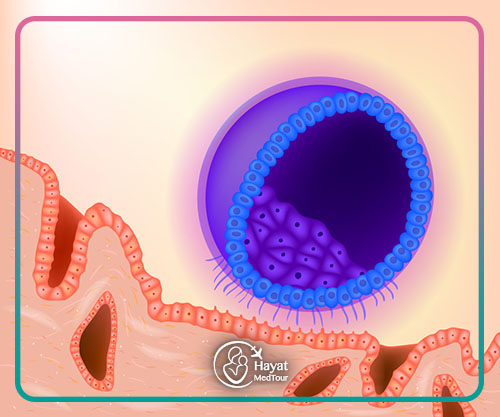
Embryonic genetic or chromosomal problems
The poor quality of the fetus and chromosomal abnormalities are the most important factors affecting IVF failure. Chromosomal abnormalities can be observed in both normal and laboratory embryos, which can lead to abortion or failure of uterine implantation.
Genetic and chromosomal problems can weaken the fetus. A weakened fetus does not have enough cells to grow, so it makes implantation difficult.
Studies show that after the age of 35 years in women increases the egg chromosomal abnormality. But the rate of these types of abnormalities in men’s sperm is lower than in eggs. One of the best ways to increase the probability of IVF success is to perform a PGD test that examines the fetus genetically. The test will help a specialist doctor choose the right embryo for transplantation and implantation. Learn more about infertility tests for women: infertility blood tests for females
Uterine Disorders
One common cause of IVF failure is the inadequate uterine lining. Polyps, cysts, poor blood flow, and thin uterine lining are some of the causes that can cause IVF failure. If the embryo is transferred to the uterus by specialists and using the appropriate equipment, there is still the possibility of IVF failure. Because uterine disorders such as thinning of the lining of the uterus, adhesions of the uterus, and the mother’s immune system can cause implantation failure. Therefore, to improve the chances of IVF success, measures must be taken to treat them.
Couple’s lifestyle

A healthy lifestyle can increase the chances of IVF success. On the other hand, factors such as being overweight and obese, smoking, drinking alcohol, consuming unhealthy foods, insufficient sleep, etc., reduce the quality of eggs and sperm and increase the probability of IVF failure. Learn more about Proper foods to eat before IVF operation: The best foods to eat to increase IVF success
Scientific research shows that IVF is more likely to fail in smokers than in normal people, so smokers have twice as many attempts to treat infertility as non-smokers. In addition, overweight and obesity affect the health of the uterus and reduce the chances of embryo implantation. Therefore, doctors recommend that couples stop smoking and alcohol at least 3 months before IVF and balance their weight by using healthy and nutritious food and regular exercise. Learn more about smoking effects on couple’s fertility: Effect of smoking on fertility
Embryology laboratory
In the IVF method, after picking up the eggs from the ovaries, the eggs are prepared for fertilization in the laboratory environment by the embryologist. An embryo is formed by the fertilization of egg and sperm. The single-celled embryo begins to divide in the culture medium of the laboratory and is ready to be transferred to the mother’s uterus. If the embryologist does not have enough experience or appropriate and advanced laboratory equipment is not used, some eggs and embryos may be damaged and the probability of IVF failure will increase. Therefore, it is recommended that the IVF process be performed in an advanced medical center under the supervision of experienced doctors.
Embryo transfer
Embryo transfer to the mother’s uterus is a very precise and complicated task. In some cases, the technical problems in embryo transfer have been the cause of IVF failure. Therefore, the expertise of the physician and the choice of the appropriate treatment center play an important role in the success of IVF. Learn more about the cares after Embryo Transfer: what to do after the embryo transfer
Finally, remember that you should not lose your positive spirit just because of a small failure in the process of infertility treatment. know more about the best fertility clinics in Iran: Best Iranian fertility centers
Losing morale and despair means you’re ready to fail again in the next IVF cycle!
As long as life is there, one should not lose hope and clarity. Don’t give up; pregnancy after failure in one or more IVF cycles is still possible.
If IVF fails, at what time interval can it be repeated a second time?
A fresh IVF cycle should not be done two months in a row without a menstrual cycle in between them. If the first try for IVF fails, the couple can repeat the IVF after 2 or 3 menstrual cycles. The reason for this delay is to give the female time to return to her normal menstrual cycle.
If you need the advice to try again, you can contact us.











